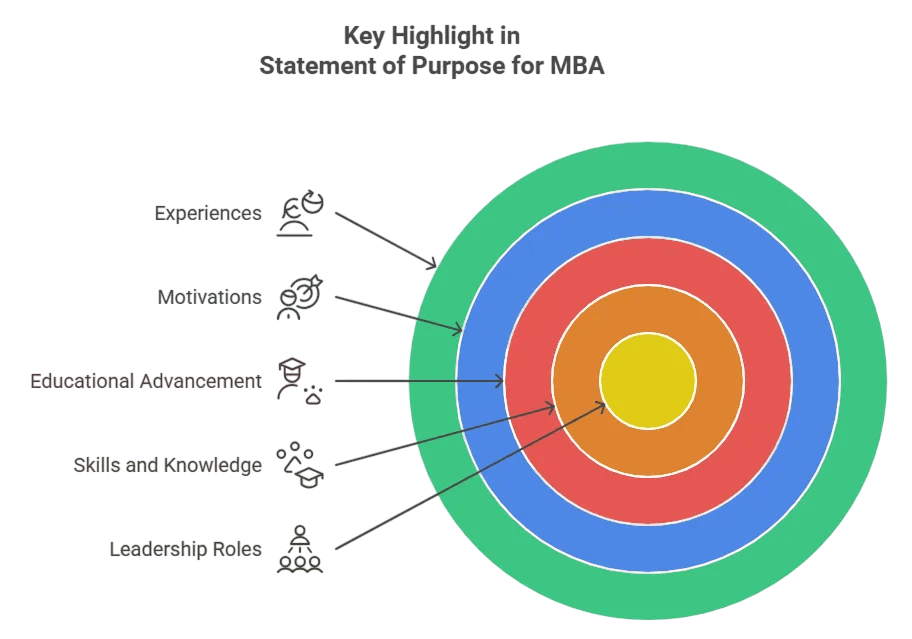
- Introduction
- Full-Form & Definition
- Purpose of an MBA
- Types of MBA Programs
- Eligibility Criteria
- MBA Entrance Exams
- MBA Specializations
- MBA Curriculum
- Career Opportunities
- MBA vs Other PG Degrees
- Global MBA Trends
- Conclusion
Introduction
In today’s competitive and rapidly evolving global marketplace, education plays a vital role in personal and professional development. One of the most sought-after postgraduate degrees worldwide is the MBA or Master of Business Administration. Designed to equip students with leadership, strategic thinking, and operational expertise, an MBA can be a game-changer for aspiring professionals, entrepreneurs, and business leaders. Since its inception in the early 20th century, the MBA has grown into a globally recognized qualification with diverse applications across industries. It is widely considered a key to unlocking higher-level management roles, facilitating career shifts, and enhancing entrepreneurial abilities.
To Explore PMP in Depth, Check Out Our Comprehensive PMP Certification Training To Gain Insights From Our Experts!
Full-Form & Definition
Full-Form: MBA – Master of Business Administration
An MBA is a postgraduate degree that focuses on the theoretical and practical aspects of business and management. It provides foundational knowledge in business disciplines like finance, marketing, human resources, operations, and strategy while fostering critical soft skills such as communication, leadership, and problem-solving. Individuals often pursue a degree to advance their careers, switch industries, or start their business ventures. Business schools offer it in various formats worldwide to suit different needs and professional situations.
Purpose of an MBA
The primary purpose of an MBA program is to develop managerial and leadership capabilities in students and professionals. It prepares them to take on leadership positions and solve complex business problems in a structured, data-driven, and ethical manner.
Key objectives of pursuing an MBA include:- Enhancing strategic and analytical thinking.
- Building leadership and team management skills.
- Understanding global business environments.
- Gaining exposure to various business functions and how they interconnect.
- Developing entrepreneurial skills for launching new ventures.
- Facilitating career growth and access to higher salary brackets.

Whether you’re aiming for a promotion, considering a career shift, or planning to launch a startup, an MBA can serve as a solid foundation.
Are You Interested in Learning More About PMP? Sign Up For Our PMP Certification Training Today!
Types of MBA Programs
MBA programs are offered in various formats to cater to different demographics, career stages, and professional commitments.
Full-Time MBA
- Typically 2 years in duration.
- Ideal for early- to mid-career professionals looking for a complete immersion in business education.
- Includes internships and campus placements.
Part-Time MBA
- Classes are held on evenings or weekends.
- It is best suited for working professionals who wish to study while continuing their jobs.
- Tailored for senior professionals with 8 to 15+ years of experience.
- Focuses on advanced leadership and strategic skills.
- Classes are held on weekends or in modular formats.
Executive MBA (EMBA)
Online MBA
- Flexible and remote format with live or recorded sessions.
- Accessible to learners worldwide and especially beneficial for those with family or work obligations.
Global or International MBA
- Offered in collaboration with global universities or campuses across countries.
- Emphasizes international business, cross-cultural communication, and global case studies.
- Each type addresses different professional needs, time constraints, and career goals.
Are You Preparing for PMP Jobs? Check Out ACTE’s Project Management Interview Questions & Answer to Boost Your Preparation!
Eligibility Criteria
When looking into what an MBA involves, it is important to understand the requirements for admission. Generally, you need both educational credentials and relevant work experience to apply for an MBA program. Most candidates should have a bachelor’s degree in any field from an accredited university. Some programs, especially Executive MBAs, may require 2 to 10 years of work experience to ensure that applicants bring practical insights to the classroom. In addition to educational background, standardized tests like the GMAT, GRE, CAT, or MAT are often required. International applicants might also need to show language skills through tests like TOEFL or IELTS. Other materials like letters of recommendation, a statement of purpose, and a personal interview are usually part of the admissions process. Since eligibility criteria can vary by country, school, and program type, understanding what an MBA is and what the specific requirements are is crucial for making informed decisions about your application.
MBA Entrance Exams
MBA Entrance exams play a vital role in the admissions process, particularly for those seeking admission to prestigious business schools. For individuals curious about what an MBA entails and how to embark on the journey, comprehending the significance of these tests is crucial. Among the prominent MBA entrance exams are the GMAT (Graduate Management Admission Test), which is broadly recognized by business schools globally, and the GRE (Graduate Record Examination), also accepted by numerous MBA programs, especially in the U.S. In India, the CAT (Common Admission Test) is essential for gaining entry into the IIMs and other top-tier B-schools. Additionally, other Indian examinations like XAT, MAT, SNAP, and NMAT are frequently utilized for MBA entrance exams admissions. For international MBA courses, non-native English speakers typically have to present IELTS or TOEFL scores to demonstrate their language skills. Achieving high scores in these assessments not only enhances your application but also boosts your likelihood of securing scholarships. Thus, for those starting out and inquiring about what an MBA is, it’s evident that excelling in entrance exams is a crucial step toward gaining entry into a competitive program.
MBA Specializations
MBA students can choose from various specializations depending on their interests and career goals. Popular MBA Specializations:
- Finance: Banking, investment, and financial analysis.
- Marketing: Digital marketing, branding, and consumer behavior.
- Human Resources (HR): Talent management, recruitment, labor laws.
- Operations: Supply chain management, logistics, process optimization.
- Information Technology (IT): Tech management, system integration.
- Entrepreneurship: Startup incubation, venture capital.
- Business Analytics: Data interpretation, machine learning for business decisions.
- International Business: Global trade, cross-border management.
- Healthcare Management: Hospital administration, health services.
- Retail Management: Merchandising, sales strategy.
The choice of specialization should align with the candidate’s strengths, background, and future aspirations.
Are You Considering Pursuing a Master’s Degree in PMP? Enroll in the PMP Masters Program Training Course Today!
MBA Curriculum
MBA programs follow a structured curriculum that balances core subjects, electives, internships, and projects. Common Core Subjects:
- Financial Accounting
- Managerial Economics
- Organizational Behavior
- Operations Management
- StrategicManagement
- Business Law and Ethics
- Marketing Management
- Corporate Finance
- Human Resource Management
- Business Communication
Electives and Projects:
- Industry-specific electives based on specialization.
- Live projects, capstone assignments, or internships.
Case studies, simulations, and group discussions are key pedagogical tools. The curriculum is regularly updated to match current business trends and challenges.
Career Opportunities
An MBA opens doors to many high-paying and strategic roles across industries.
- Finance: Investment banker, financial analyst, CFO, risk manager.
- Marketing: Brand manager, digital marketing strategist, product manager.
- HR: HR manager, training and development head, compensation analyst.
- Operations: Supply chain manager, logistics head, quality analyst.
- Consulting: Business consultant, strategy analyst, management consultant.
- IT Management: Project manager, IT consultant, tech strategy lead.
- Entrepreneurship: Startup founder, business development head.
- Top recruiters for MBA graduates include McKinsey, BCG, Goldman Sachs, Google, Amazon, Deloitte, and major global firms.

MBA vs Other PG Degrees
MBA is often compared with other postgraduate options, each with its unique focus.
| Feature | MBA | M.Com | M.Sc in Management | PGDM |
|---|---|---|---|---|
| Focus | Practical, managerial | Accounting & commerce | Theoretical management | Equivalent to an MBA |
| Duration | 1–2 years | 2 years | 1–2 years | 1–2 years |
| Eligibility | Any UG degree | B.Com or similar | Any UG degree | Any UG degree |
| Industry Demand | Very high | Moderate | High | High |
| Global Recognition | Very high | Moderate | High | High in India |
MBA programs are more versatile, professionally oriented, and widely recognized in corporate and entrepreneurial sectors.
Global MBA Trends
The landscape of MBA education is evolving with globalization and technology.
Key Trends:
- Digital and Online MBAs: More institutions offer fully online and hybrid programs.
- Focus on ESG: Environmental, social, and governance studies are gaining prominence.
- Data and AI Integration: Business analytics and AI are increasingly part of core studies.
- Shorter Programs: 1-year MBAs are gaining popularity for their time efficiency.
- International Exposure: Student exchanges, global case studies, and foreign internships are becoming standard.
- Diversity and Inclusion: Greater emphasis on gender, cultural, and ethnic diversity.
These trends ensure MBA programs stay relevant in addressing modern business challenges.
Conclusion
An MBA is more than just a degree; it’s a transformative journey that sharpens your managerial acumen, enhances your leadership abilities, and expands your professional network. Whether you aim to climb the corporate ladder, pivot careers, or launch your startup, an MBA can provide the knowledge, confidence, and credibility you need. The global relevance, interdisciplinary learning, and practical exposure make an MBA one of today’s most versatile and valuable postgraduate degrees. Choosing the right program, specialization, and mode of study is critical to maximizing its benefits and aligning it with your long-term career goals.





